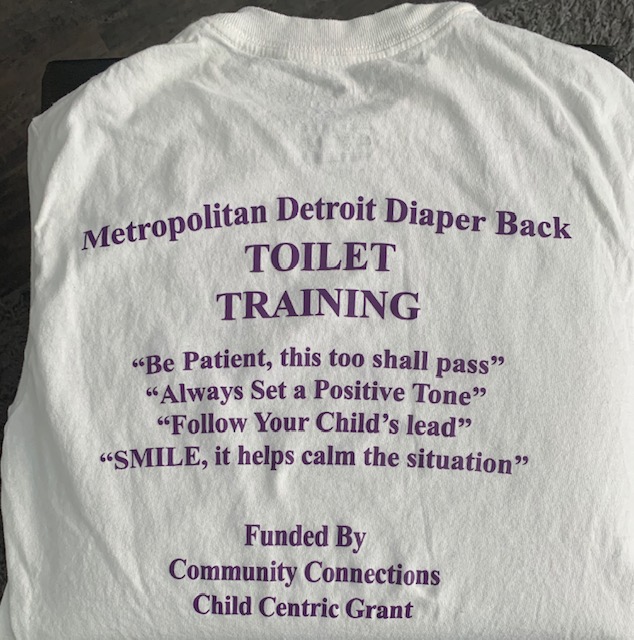According to NC Policy Watch, one in three families across the country struggle to afford diapers, as they cost on average $70-80 per month per child. WIC and SNAP benefits do not cover these expenses. Lack of diapers, or “diaper need,” also interferes with work, school, and even childcare, as centers expect children to be dropped off with diapers for their time at childcare centers. Many other childcare providers do not accept children who are not potty trained.
Family income correlates with the timing of toilet training. Families with annual incomes over $50,000 see 24 months of age as an appropriate age to begin potty training. Statistics show that white parents start their children potty training on average at 25.4 months of age compared to 19.4 months of age in black households. There is a lack of access to diapers for people of color living below the poverty line, necessitating the need for potty training sooner. The strain of diaper dependence busts budgets and lack of diapers disqualify children from childcare or makes care cost more. This keeps parents out of the workforce and hinders them from improving their financial stability. Potty training can be the break that struggling families need, and the earlier toddlers acclimate to using a toilet, the more money will be saved.
Organizations like the Metropolitan Detroit Diaper Bank (MDDB) bridge the gap in resources such as diapers and other essentials. They also host potty-training courses to ease this burden. MDDB has four signature programs, one of which is Toddler Time. MDDB is the catalyst that surfaced the community’s needs and utilized the services of Deitra Covington to teach potty training, early literacy, and nutrition through Toddler Time to more than 40 participants per cohort, dating back to before the pandemic. Through a grant from Community Connections, Toddler Time moved from an in-person format to completely online sessions to provide to a waiting list of parents in need.

After attending the Toddler Time program, parents’ reactions to the training provide a glimpse of the value of the importance of potty-training support. Many felt encouraged, stating that they felt overwhelmed at the thought of beginning potty training. Others felt excited to expand their knowledge of parenting techniques in general, as exposure to alternative methods sparked their interest. Others felt thankful for the workshops, as many were first-time parents without much support. Diapers and other essentials are vital to all children, yet potty training is necessary to mitigate the poverty gap among families of color with small children. There are more than 200 local diaper banks across America, only a negligible amount offers toilet training programs. It is clear from the comments that participants felt the pressing need to get their little ones potty trained and appreciated the coaching and assistance from the Toddler Time program.

The lack of programs like Toddler Time emphasizes the need for Community Connections and participatory grantmaking. People and communities deserve support to create solutions that are meaningful to them. The Metro Detroit Diaper Bank targeted a need that was found in the community that often goes unfilled. To address that need, Ms. Covington (Toddler Time) services those needs by working with parents. Many programs that Community Connections supports fill these gaps in services by community experts working from the frontlines of the issues. Programs like Toddler Time advance equitable access to childcare programs for children by helping families save money on diaper costs.

